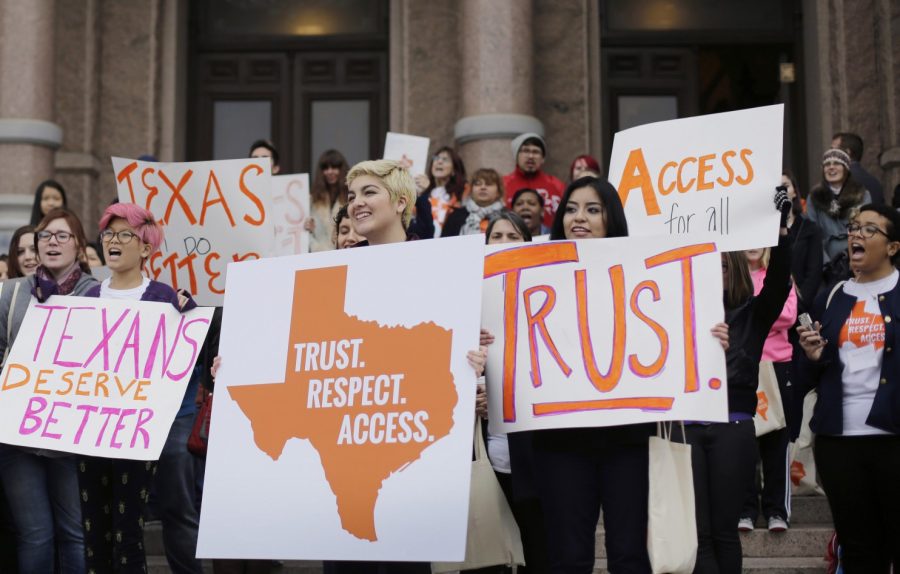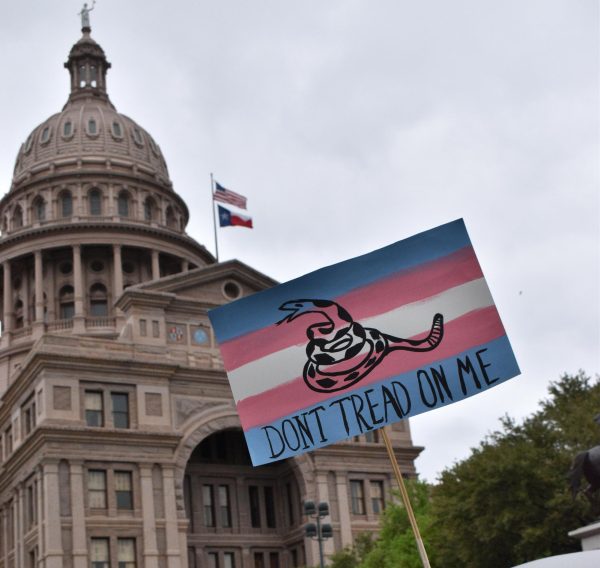New Texas abortion law further marginalizes women
On Dec. 19, a disturbing new law will go into effect in Texas — a law that shames women, infringes upon liberties and prolongs the suffering of victims. Starting next week, all women who get an abortion or suffer a miscarriage will be required to bury or cremate their fetal remains.
While there is much to dispute regarding this new rule, one thing is indisputable: with this added requirement comes a significant added monetary cost. An abortion that once cost $300 to $950, according to Planned Parenthood, will now have the additional expense of $1500 to $4000 for burial or cremation, as estimated by the Texas Medical Association. Already, a large percentage of women seeking abortions have immense difficulty summoning up the few hundred dollars needed for the operation. Many of these women are living in poverty, likely unable to get the proper healthcare or education needed for adequate birth control; some are struggling financially to get themselves through college, and about 10,000 women \per year seek an abortion due to rape or incest. This added cost of thousands of dollars per procedure only adds to the stress — financial and emotional — of these suffering women. Many women will simply be unable to pay for it, causing them to turn to highly dangerous methods of performing the procedure themselves. In an attempt to “save the lives” of the unborn fetuses, the state of Texas compromises the health and safety of the women in which they “live.”
Aside from the financial toll that the new requirements take on women seeking abortions, it also places an enormous emotional and mental burden on them. I want to make two things clear right off the bat. One: no woman ever wants to have an abortion — it’s likely one of the hardest decisions that many women will make in their lives. Two: miscarriages are devastating to the mother — psychological analysis shows that women who experience pregnancy loss suffer with a variety of unhealthy emotions, ranging from disbelief to guilt, following their miscarriage. By requiring these women to then bury their fetuses, the new law forces them to perpetuate their suffering. One Texas rape victim who received an abortion stated that if she had been required to bury her fetus it would have “essentially been the state of Texas rubbing [her] face in [her] own rape.” Women who receive abortions or have miscarriages are already trying to cope with their loss in a way that is most effective for themselves. By awarding this measure of dignity to unborn fetuses, a larger amount of dignity is stolen from their mothers. The fact that Texas lawmakers — the majority of which lack the needed reproductive organ to even carry out their own laws — have the audacity to tell women how to deal with their lost or terminated fetuses is the embodiment of what is wrong with our patriarchal society.
For now, abortion is legal by federal law, and there is nothing that Texas or our beloved governor Greg Abbott, who is championing the new requirements, can do about that. Unless Roe v. Wade is overturned — an unlikely occurrence despite the promises of our president-elect — the best that Texas can do is make rules to undermine the personal liberties women earned when the law was passed more than 40 years ago. Abbott knows that he does not have the authority to ban women from receiving an abortion, so instead he and the other “pro-lifers” surrounding him ensure that their lives are made as difficult as possible should they receive one.
Which brings me to my next concern: “Pro-life” is one of the biggest misnomers in today’s society. If someone is “pro-life” because they are opposed to abortions, then does that mean that a woman who gets an abortion due to her compromised health is “pro-death?” Call me crazy, but I don’t think that’s a fair categorization. I find it personally offensive when my morals are questioned due to my belief in a woman’s right to her own body. I am confident in saying that I, as someone who supports women who choose to terminate their pregnancies, value human life just as much, if not more than someone who denies women this choice. What’s more, the vast majority of “pro-lifers” support the death penalty. In a study done by the University of Central Florida, “only about 8 percent of Americans oppose both abortion and the death penalty under all circumstances.” How can you advocate so strongly for the “sanctity of life” in one instance but so blatantly disregard it in the next? It is this kind of hypocrisy and backwards thinking that makes me curious as to how, in the developed and seemingly logical society we live in, we are still even discussing the issue of abortion.
Despite my obvious strong feelings regarding reproductive rights, I take my categorization of “pro-choice” very literally. By this, I mean that I honestly believe that everyone has the right to his or her own opinion regarding abortion. If someone has a strong religious affiliation that tells them life begins at conception, and if they want to advocate for alternative ways to deal with unplanned pregnancies, then I am all for it. However, I do not believe that one person’s ethical beliefs should have the ability to determine another person’s actions when it comes to an issue that is so circumstantially and emotionally personal.
Here’s some food for thought: if all lives are created equal, as stated in our Declaration of Independence, and if life begins at conception, as so many “pro-life” advocates argue, then shouldn’t some states be punishing abortion by means of the death penalty? If abortion is murder, wouldn’t a miscarriage be manslaughter, and shouldn’t both be treated likewise by law enforcement? Virtually no one is making this argument. Even President-Elect Donald Trump in all of his misogynistic glory can’t manage to stand by his claims that women should be punished for seeking an abortion. It’s simply illogical — even the strongest conservatives must have a gut feeling that the murder of a human being is more punishable than the termination of a fetus.
Barring women from the right to their own bodies or intentionally making it difficult for them to make use of this right is inherently unfeminist, and the implementation of this new abortion law proves to me one thing: when people say “everything’s bigger in Texas,” this includes the vendetta against women.






